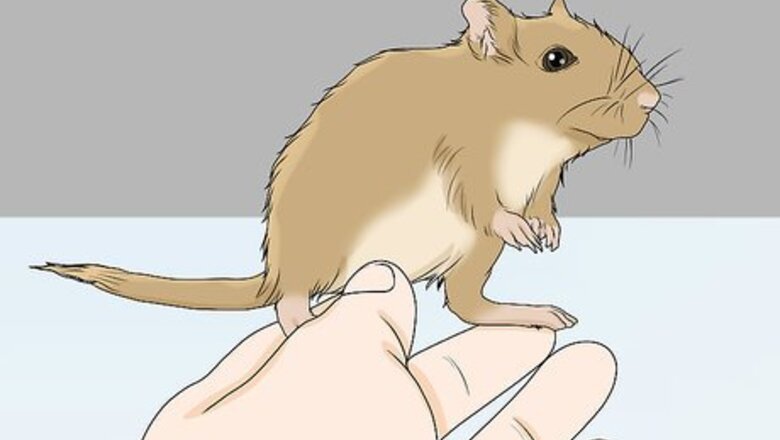
views
Checking for Symptoms
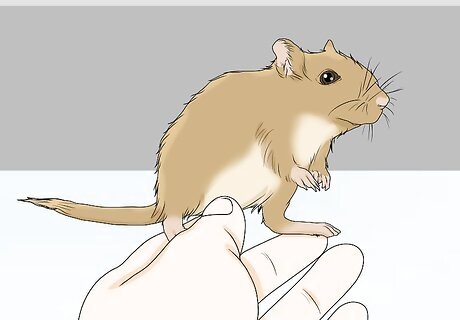
Observe your gerbil's body shape. Look for changes in your gerbil's body, particularly in the abdominal area. An ovarian cyst may protrude from your gerbil's side, or from its abdomen, making it look pregnant. Note if your female gerbil is starting to look bell or pear-shaped, which is a strong indication an ovarian cyst. A swollen abdomen could also be a tumor or pregnancy. Watch your gerbil for other signs of an ovarian cyst. Take note of the quality of their coat as well. Ovarian cysts can sometimes cause hair loss, creating a patchy coat.
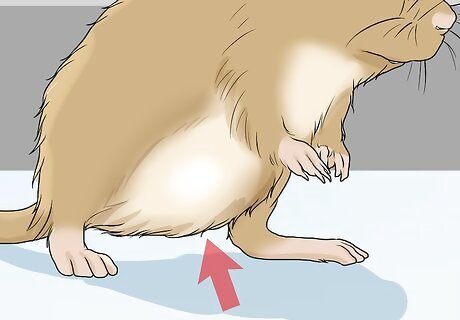
Look for fast growth. Ovarian cysts manifest the fastest out of all the possible causes of a bloated look in gerbils. Be sure to observe your gerbil each day and note the progression of any growth day-to-day. Ovarian cysts can cause your gerbil to look bloated within a few days. Bloating can also be due to pregnancy, a tumor, or weight gain, but it will develop more slowly with these conditions.
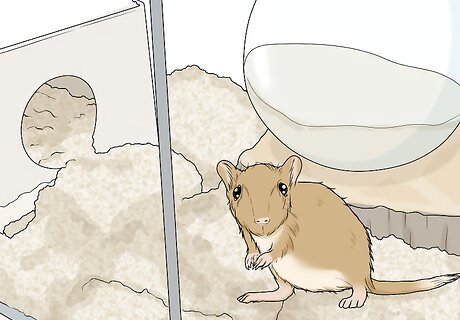
Watch your gerbil's activity level. Ovarian cysts are normally harmless, unless they get big enough to press on your gerbil's nerves or vital organs. This pressure may disrupt their function and can zap your gerbil's energy. Observe your gerbil's activity, and if it seems to be moving around significantly less, contact your veterinarian.
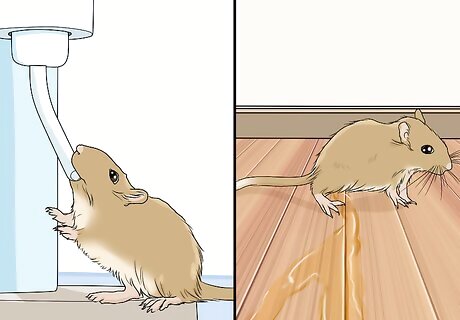
Be aware of excessive drinking and urination. Excessive thirst is a possible symptom of ovarian cysts, which will result in a lot of drinking and urination. Keep track of how much water your gerbil drinks each day from its dish or bottle to spot an increase. When you are changing the bedding in your gerbil's habitat, note if it is more soiled with urine than usual. Clean your gerbil's cage at least once a week, and monitor its drinking and urination habits at the same time. If your gerbil seems to be drinking and urinating a large amount, try cleaning its cage more often (e.g., twice a week.) Be sure to consult your vet about these symptoms, which may also be due to more serious ailments like diabetes or kidney disease.
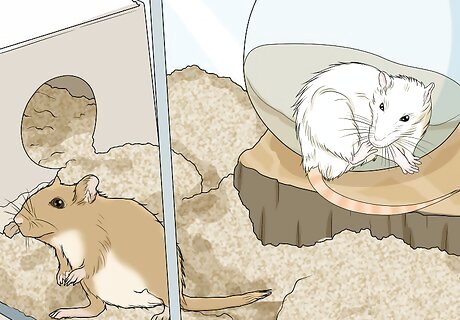
Monitor fertility. If your gerbil is sexually active, watch for any sudden cessation in fruitfulness. Ovarian cysts can disrupt the function of reproductive organs and cause infertility. Gerbils can reproduce quite frequently, so this stop will be fairly evident. Gerbils can reproduce quite frequently since they give birth after only around 25 days of gestation. A female gerbil will often mate again on the same day they give birth. Infertility in older gerbils (e.g., 3 or 4 years of age) may simply be due to age and not to an ovarian cyst.
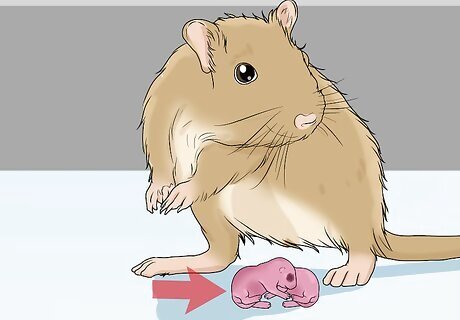
Take note of litter sizes. Ovarian cysts can also reduce the number of gerbil pups produced in a litter. If your gerbil only gives birth two one or two pups, this may be due to a cyst or other abnormality. Observe the number of pups your gerbil produces, which should normally be around five or six. A mother gerbil may neglect its pups if the litter is too small, which often results in them dying after a day or two.
Treating Ovarian Cysts
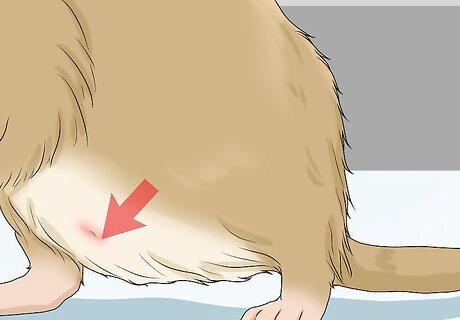
Monitor the growth of your gerbil's cyst. There is a good chance that your gerbil's cyst is harmless and may resolve itself on its own. Watch your pet for any concerning symptoms such as lethargy or loss of appetite. Be sure to consult your vet if the tumor becomes very large or if your gerbil seems otherwise ill.
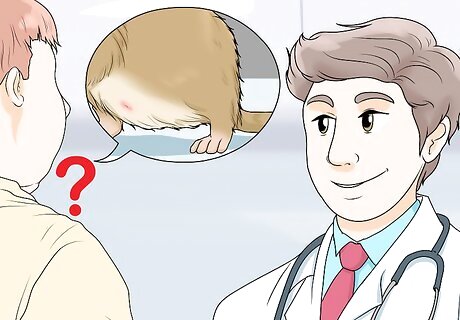
Consult your veterinarian. To ease your concerns, make an appointment with a veterinarian to confirm whether or not your gerbil has an ovarian cyst. Your vet will rule out other possible causes of your pet's symptoms and tell you if the cyst is dangerous. Your vet can also advise you on whether any intervention is necessary.
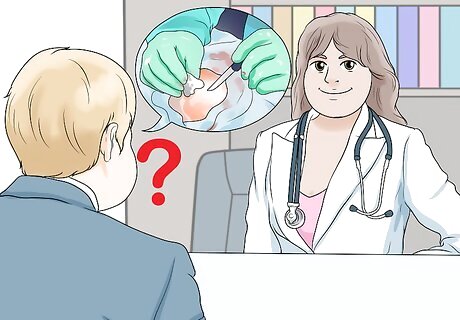
Ask your veterinarian about surgery. If your gerbil's ovarian cyst is harming its health, ask your vet if surgical removal is a good option. Note that the surgery itself, as well as anesthesia, is risky, especially for an older gerbil. Depending on the size and shape of the cyst, surgery may not be possible. One option may be ultrasound guided aspiration. This procedure will reduce the size of the cyst, making your gerbil more comfortable. That said, it will not remove the problem.
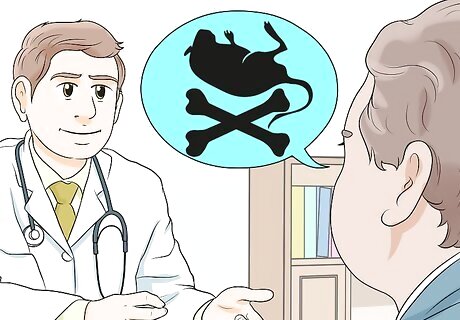
Talk to your vet about putting your gerbil down humanely. If your gerbil's quality of life is negatively affected by an ovarian cyst and your vet is not able to intervene surgically, ask about the option of putting down your pet. Your veterinarian may be able to end your gerbil's suffering painlessly. This might be the best option for your gerbil if it can no longer eat or move around normally.

















Comments
0 comment